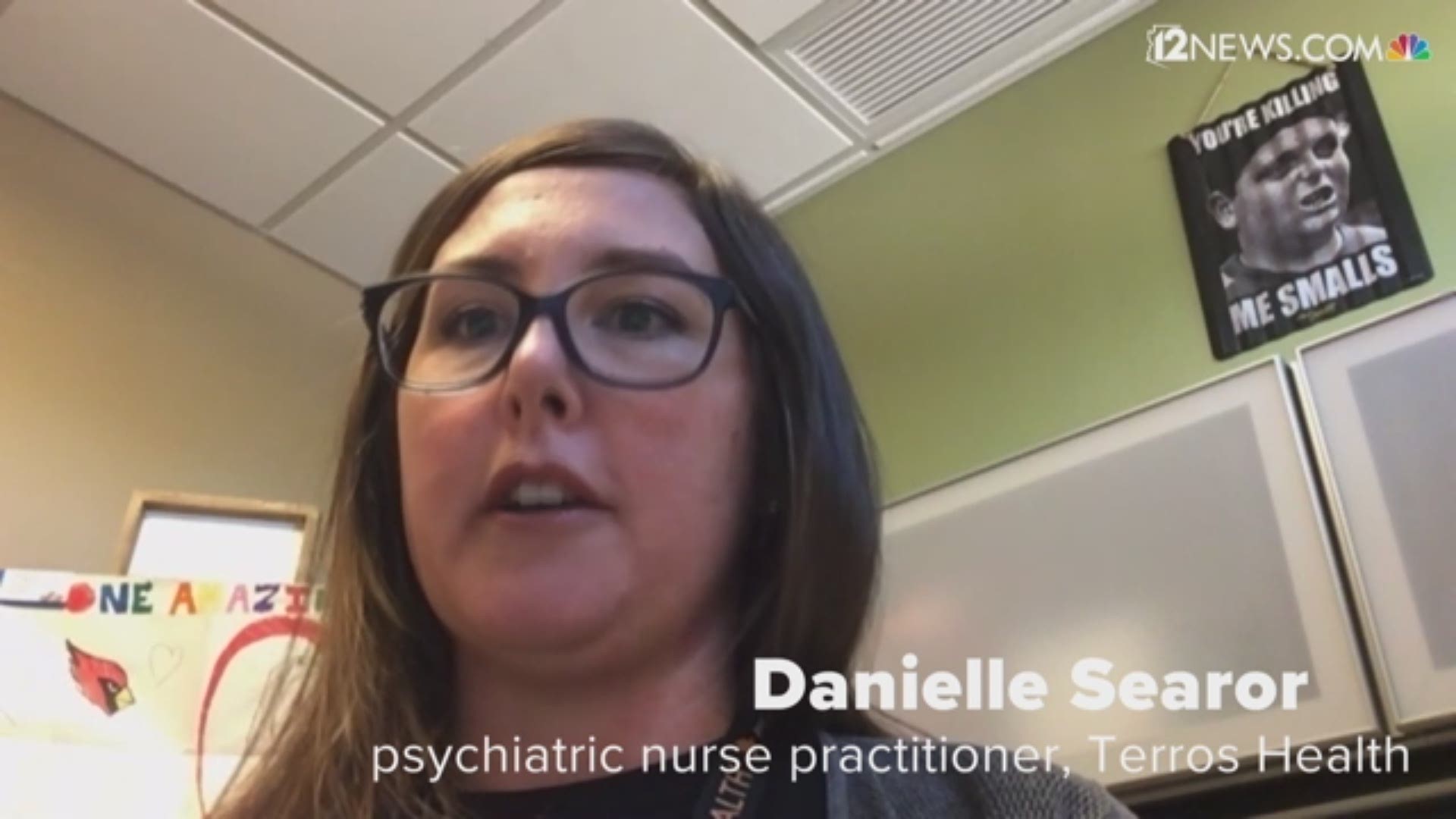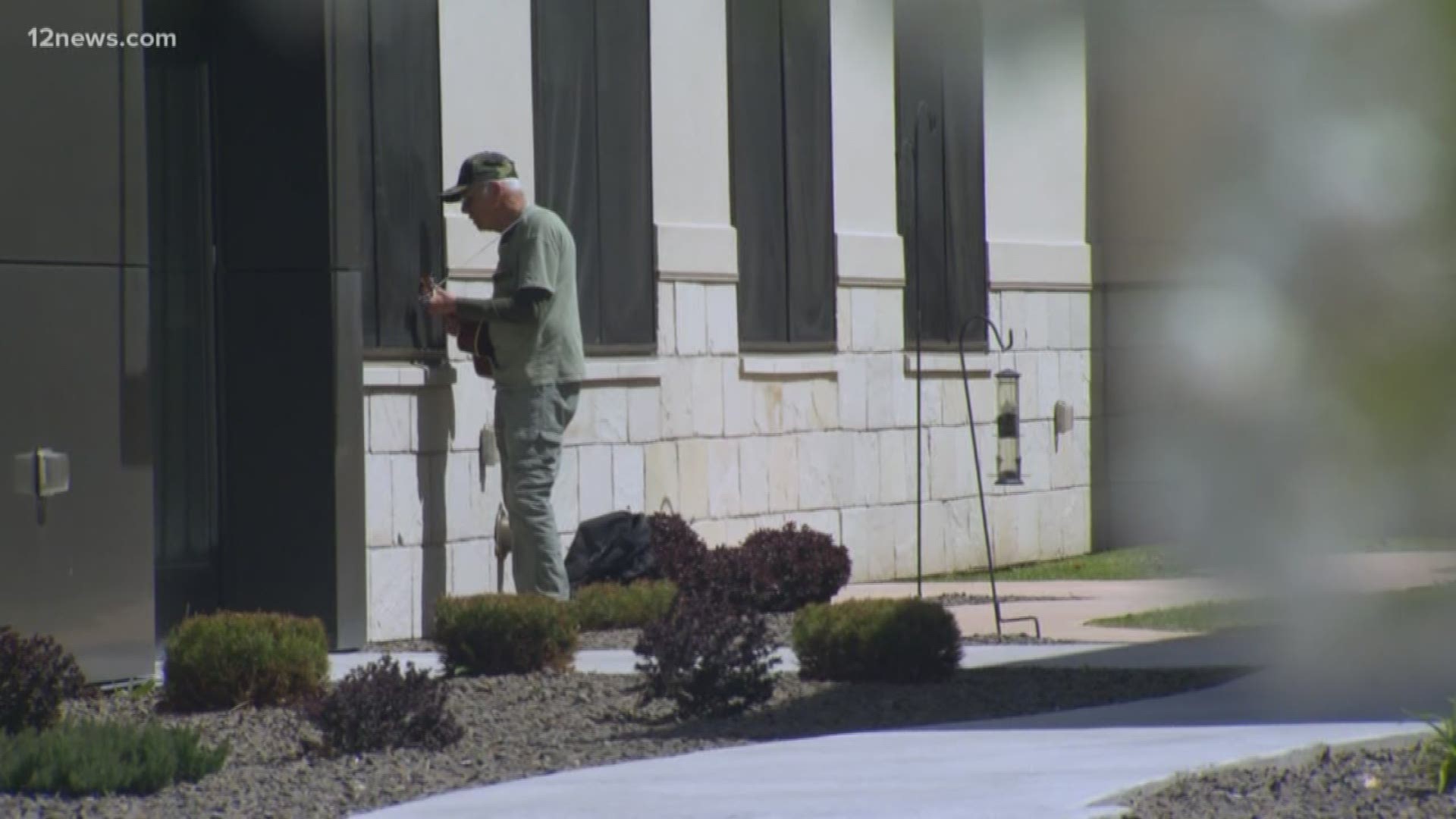PHOENIX — With so much uncertainty, it's natural to feel some stress. But when we're all trying to avoid a virus that attacks the respiratory system, that tightness in your chest could cause more unnecessary worry.
People feeling short of breath because of anxiety may convince themselves they've contracted COVID-19, said Danielle Searor, a psychiatric nurse practitioner at Terros Health's Stapley Primary Care in Mesa.
The clinic does integrated health, providing care for both mental and physical issues. So Searor has heard from several people calling in about wanting tests even though they aren't showing all the symptoms.
"It's pretty apparent for us on our own end when it's coronavirus versus the more of the mental health, the anxiousness the – kind of stir-crazy is kind of the vibe that we're getting a lot," she said.
It's not just shortness of breath. Searor says anxiety can bring on other physical symptoms that can trick you into thinking you have COVID-19, like fatigue, body aches and headaches.
"Anxiety can come across with physical symptoms, and so it's kind of people talking themselves into thinking that they've got a sickness or an illness when, in reality, they're just letting their mind go," she said.
Rest assured, if it's only shortness of breath, it likely isn't coronavirus. Searor said shortness of breath caused by COVID-19 will usually be accompanied by a dry cough, fever and a loss of taste and smell.
"I mean, there's a lot that we do not know about the virus, but what we do know is [shortness of breath] is usually not the isolated symptom," she said.
How to get through an anxiety attack
Anxiety attacks can come in different forms. That chest pain can hit you like a whirlwind or steadily increase over a long while. Searor says it usually takes a distraction to get your mind off the "self-destruct path."
- Deep breathing
Focus on taking slow, deep, even breaths. One exercise you can try is breathing in for five seconds and out for five seconds.
- 5,4,3,2,1 technique
This grounding technique makes you focus on your senses. It can take a few different forms. In one version, you look around the room for five circles, four triangles, three squares, etc., until you're sufficiently distracted.
In another version, you look for five things you can see, four things you can feel in your immediate vicinity, three things you can hear, two things you can smell and one thing you can taste. There are variations of this technique you can try if you can't use all five senses.
- Medication
Talk you your doctor about medications you can try if you keep suffering severe anxiety attacks.
How to avoid another anxiety attack
First, seek treatment from a health professional.
"If you're struggling with your mental health, please don't hesitate to reach out. We're here. This is such a unique time in health care where we have allowed for telemedicine," Searor said. "It will never be any easier than this to reach out and get help."
With so many of us yearning for things to go back to usual, it might also help to stick to a routine. Here are some tips Searor gives to her patients on how to feel normal in such weird times.
- Try to follow a schedule
Many of us are trying to balance working, teaching – and everything else we used to do around town – all at home. A routine might help you get organized and adapt to this new situation.
- Take some "me time"
As you set your schedule, make sure to take some time to yourself to focus on mindfulness. Try things like meditation or deep breathing, whatever helps bring you back to center.
- Get outside
It's OK to go out for some fresh air and exercise. It will probably help if you're feeling cooped up at home. Just make sure you're practicing physical distancing.
- Connect with loved ones
You're not alone in your anxiety. These are stressful times, so it's vital that you check in on friends and family. Luckily, there's plenty of technology you can use to connect while physically distancing.
- Eat healthy
It may feel comforting to eat junk food while you're sitting at home all day, but it won't feel good in the long run. Your mental and physical health are intertwined, so take care of yourself on both fronts.
- Take a media break
Now that you're informed and – hopefully – feeling a little better, put down the phone. Searor says the anxiety people are feeling can come from an overload of information.
MENTAL HEALTH RESOURCES:
FEEL-GOOD STORIES:


